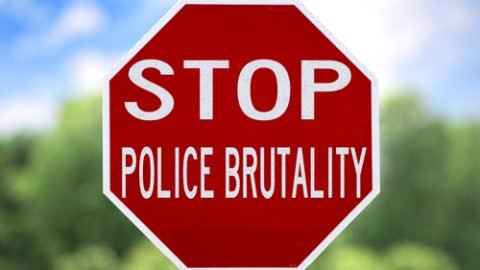Nigerian Police Internal Reform to raise Ethical Standard – Recommended Next Steps

Police misconduct is a scary thought but sadly all too common in Africa. There is a global trend of police misconduct in the news at the moment, but this is further exacerbated in Nigeria by the weakness and slowness of the police organisation to deal with most complaints. So what can the Nigerian police do? The police are supposed to be the people we trust to keep us safe, but that is usually not the feelings of Nigerians towards police officers.
The problems of misconduct within the police is historical and has been a major concern in Nigeria for decades. All previous IGPs have paid lip service to resolving this problem. Truth is the IGPs have been too focused on trying to keep their jobs to have the time for tangible police reform in Nigeria. Burdened by the ease with which he can be sacked at will by a sitting President, use of an obsolete 1943 colonial Police Act and an underfunded police organisation; IGPs tend to think in short term survival mind-frame than long term strategic perspective. With no security of tenure we have had about 13 IGPs in 15 years. It is against this backdrop that I will like to recommend some quick and urgent measures that police leadership can take to improve standard of behaviour and ethical discipline within the police.
As with the wider Nigerian state; the problem we have with police reform is not lack of ideas but lack of will and courage to implement what is necessary. Below are just some of the many ideas I believe can help trigger a reform in the standard of policing in Nigeria.
11 Key Recommendations are:
Early intervention is key. Introduction of three strikes you are out policy. Officers with three Upheld misconduct complaints within a 5yr period will face automatic dismissal.
A minimum of yearly training program. More if needed. All officers must undertake yearly training as a minimum even if it is Computer Based Training.
Change of working partners. Officers with complaint against them should be made to work with new colleagues as a matter of policy. This may involve changing the police division they are listed to.
Psychological assessment of all officers after new postings or promotions. Treatment, training, restrictions of duty or dismissal should be recommended accordingly.
Swift dispensation of investigations and punishment. A 21-day maximum timeline should be given for resolution of all complaints. Outcomes must be publicised.
As a matter of routine policy; All officers assigned to desk duty and disarmed after every complaint until investigation is completed.
New Whistle Blowing policy needed. This should give protection to officers to report misconduct anonymously. The handling team for this policy should be made independent of the police. This may be outsourced.
Every officer dismissed for Gross misconduct that led to a fatality must lose their pension in addition to dismissal and other punishments.
Lying to investigators or planting of evidence should become an immediate sacking offences in the police. All officers must know that if they cannot be trusted to say the truth, they cannot remain in the NPF. Numbers of those dismissed in this category should be published periodically throughout the year.
Any police officer found to be drunk on duty must face immediate dismissal. The threshold should be made known and the DPOs should be empowered to test all officers in his division if alcohol use is suspected. The breathalysers needed should be supplied by the Force HQ to all divisions.
The widespread arming of police officers should end in Nigeria. An Armed Unit need to be created in every command. This will be better trained officers who will undergo yearly psychological evaluation and revalidation of their firearms skills. They can be called upon when needed by frontline officers. All other rank and file officers should be armed with Tasers and other non-lethal tools. This will reduce needless shooting and make those allowed to carry arms better trained and better prepared.
There are many more ideas where this came from. My books on policing reform in Nigeria has over 90 recommendations. But I believe the foregoing are sufficient to start with. The key is Implementation. Where there is leadership will; there will always be progress. Strengthening the accountability of the police institution is of critical importance to effectively combat corruption and break the circle of impunity.



